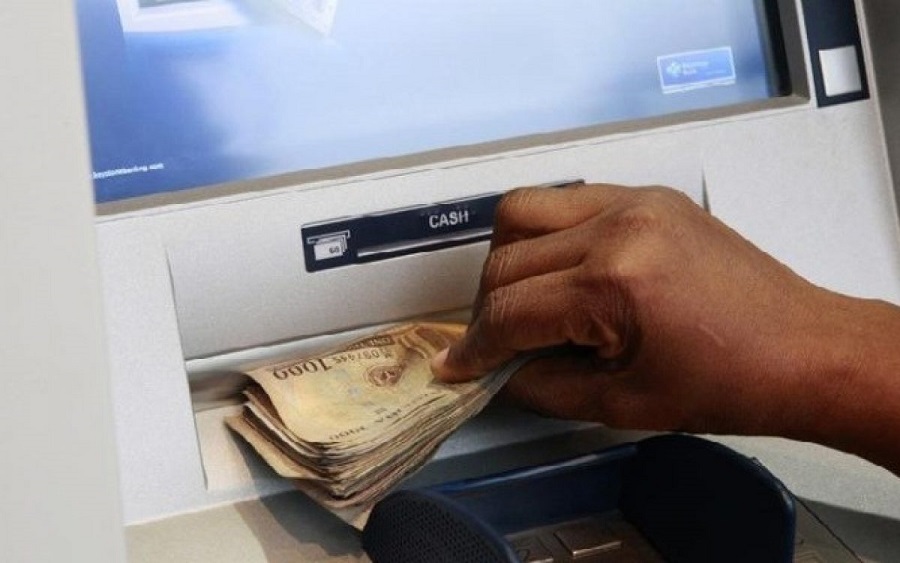Place your adverts here on InfoDig @ low rates; banner ads, sponsored links and guest articles etc. Contact us
Musa Yusuf, founder of the Centre For the Promotion of Private Enterprise (CPPE) has said the new decision of the Monetary Policy Committee (MPC) would further worsen the cost of funds, pushing it well above 35 per cent .
The MPC on Tuesday, after a two-day meeting in Abuja increased the interest rate or Monetary Policy Rate (MPR) by 50 basis points to 27.25 per cent in September 2024 from the previous 26.75 per cent. Additionally, the committee elevated the Cash Reserve Ratio (CRR) by 50 basis points, increasing the requirement for Deposit Money Banks (DMBs) from 45 per cent to 50 per cent, and for Merchant Banks from 14 per cent to 16 per cent. The committee maintains the Liquidity Ratio (LR) at 30 per cent and the Asymmetric Corridor at +500/-100 basis points in relation to the MPR.
Yusuf, worried by the policy decision of the CBN, said it is most inappropriate given the prevailing economic conditions and the challenges faced by entrepreneurs in the country, stating the increase in CRR to 50 per cent would constrain financial intermediation with negative consequences for the banking system and the economy.
“The operating and production costs of businesses would be further exacerbated by the latest monetary policy”, stated Yusuf who noted that the raise in interest rate is quite troubling at a time like this when manufacturers, entrepreneurs and other investors in the economy are craving for a breath of fresh air.
“The latest policy choice of the apex bank is at variance with the mood of most economic players and the desire to promote economic recovery and growth. What manufacturers and other investors need at this time is some oxygen and stimulus, not policy measures that would worsen an already suffocating situation. MPR at 27.25 per cent; CRR at 50 per cent and asymmetric corridor at +500 and -100 are very difficult monetary conditions to bear for most businesses, given the prevailing macroeconomic and structural conditions.
He explained that the second quarter GDP numbers showed clearly that the economy was still in a floundering mode as many critical sectors of the economy like manufacturing and other subsectors of the industrial sector such as cement, food and beverage, chemicals and pharmaceuticals, trade, ICT and real estate slowed down.
The CPPE Boss stated that at a time when the road transport, motor assembly, publishing and motion pictures sectors were contracting and the Aviation, Oil, refining, textile , livestock and quarry and minerals sector were still in recession, tightening financial conditions in the circumstances does not seem appropriate.
“The private sector should not be made to pay the price of liquidity growth which they were not responsible for. Issues of excess liquidity should be addressed within a causative context as the injection of liquidity into the system are largely public sector driven, as rightly noted by the CBN”, he concluded.
The hike in interest rate by the MPC goes against analysts’ expectations especially with the slowdown in inflation rate which fell for a second consecutive month in August 2024, down to 32.15per cent year-on-year from 33.40per cent in July 2024.
The Special Adviser to the Chairman Senate Committee on Banking, Insurance and other Financial Institutions., Prof. Uche Uwaleke said “My take on the recent hike in MPR is that in matters like this, the CBN usually has information that may not be at the disposal of the public.
“I want to believe the members of MPC mean well for the economy and have taken the decision to further tighten monetary policy based on strong evidence of major threats to exchange rate and inflation.
“All said, the task of taming inflation must be jointly tackled by both the monetary and fiscal authorities. So, the government has to play its part by controlling recurrent spending and focusing on productivity, including ramping up assistance to small businesses.”
A group of analysts at Cordros Research had stated that, “We think the Monetary Policy Committee faces a pivotal decision – either maintain current rates to allow previous hikes to fully impact the economy or continue rate increases to reinforce gains from prior adjustments owing to the elevated inflation risks exacerbated by the recent rise in PMS price.
“Our baseline expectation is for the MPC to adopt a “HOLD” stance in the forthcoming meeting, as we expect the Committee to refer to the recent decline in headline inflation, even as inflation risks are now strongly tilted to the upside. Additionally, the intensification of global monetary policy easing reduces the risk of capital flight from developing markets like Nigeria, lessening the pressure for defensive rate hikes.
“Also, we highlight the dovish signals from the CBN coming off the apex bank’s adjustment of the asymmetric corridor to +500/-100basis points around the MPR.
“Specifically, the CBN limited the Standing Deposit Facility (SDF) rate of 25.75per cent on deposits of up to N3.00 billion, with a fixed rate of 19 per cent on excess deposits, thus discouraging banks’ utilisation of this window.
“As a result, fixed income yields have pared down over time. Given these developments, we expect the MPC to keep the policy rate at 26.75per cent while retaining all other parameters.”

 2 hours ago
38
2 hours ago
38














 English (US) ·
English (US) ·